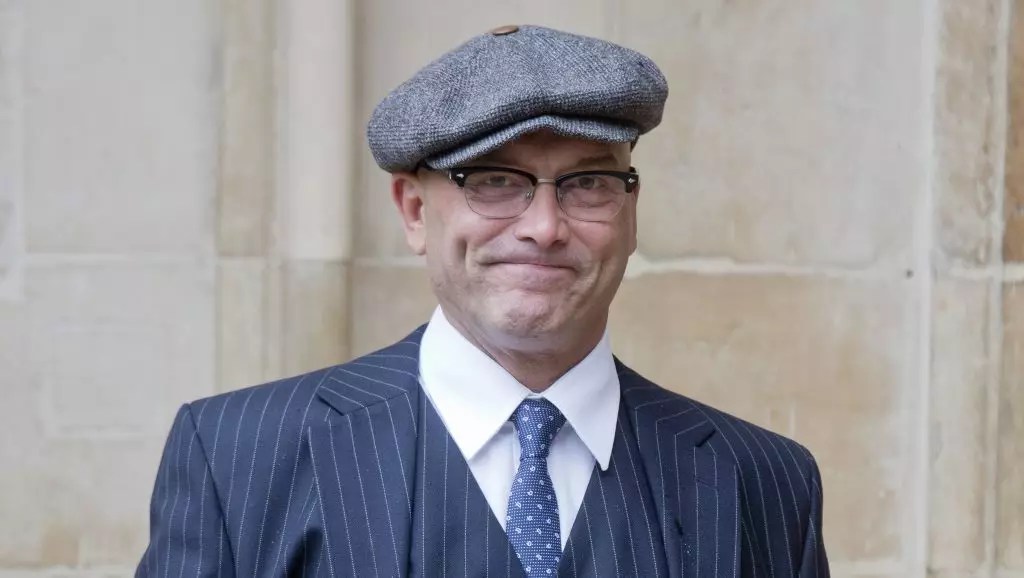In the high-stakes world of television, fame can be both a blessing and a curse. The recent controversies surrounding Gregg Wallace, a beloved face of MasterChef, serve as a stark reminder that those in the limelight are not immune to scrutiny or the consequences of their actions. While society often elevates celebrities to near-mythical status, it is crucial to recognize that they are also fallible humans who carry vulnerabilities, mental health struggles, and the capacity for both good and harm. The case of Wallace underscores the importance of balancing empathy with accountability, prompting a reevaluation of how we address misconduct allegations against public figures.
The involvement of a dedicated welfare specialist hired by Banijay UK highlights a troubling aspect of this industry — the potential neglect of mental health and well-being amidst scandal. The decision to provide bespoke psychological support for Wallace, particularly over seven months, reveals an acknowledgment that the allegations and resultant pressure had severe personal implications. However, it also raises uncomfortable questions about the responsibilities of employers in managing crises: Are they prioritizing the mental health of their stars, or merely protecting their brand image? The line between compassionate care and superficial damage control is thin, and the pressure to contain negative publicity often complicates genuine support.
Furthermore, the internal investigation led by law firm Lewis Silkin points to a broader institutional dilemma. Companies involved in high-profile scandals have historically grappled with transparency and accountability. Public trust hinges not just on the findings of such investigations but also on their perceived genuineness. For Wallace, the cloud of allegations — whether substantiated or not — has painted a portrait of a man battling personal, professional, and societal scrutiny simultaneously. His claim that his behavior stems from an autism diagnosis adds another layer of complexity, inviting a discussion on how neurodiversity should be accommodated yet not exploited to dismiss accountability.
The Human Cost and Society’s Response
Wallace’s candid admission of contemplating suicide following the wave of allegations exposes a tragic, often-overlooked consequence of public scandal: profound emotional distress. The toll on mental health, especially for those who are publicly vilified, is frequently underestimated or dismissed. It becomes a stark reflection of societal failure to provide adequate support systems for individuals facing intense scrutiny and accusations. Respect for humanity demands that we challenge the often toxic culture of canceling and instead focus on meaningful rehabilitation and understanding.
The accusations against Wallace, encompassing misconduct spanning over a decade, pose difficult questions about workplace behavior, institutional oversight, and societal tolerance for inappropriate conduct. While some allegations have been dismissed or attributed to misunderstandings linked with his autism, the presence of multiple concerns over numerous years suggests a pattern that calls for introspection. Is society willing to confront uncomfortable truths about its icons? Or does it prefer to dismiss such issues in favor of preserving entertainment and nostalgia? The tension between societal forgiveness and justice becomes palpable here.
Moreover, Wallace’s legal battles against allegations, claiming discrimination based on his neurodivergence, highlight the ongoing struggle to balance individual rights with societal expectations. Neurodiversity, while an important concept promoting acceptance, can sometimes be weaponized as a shield against accountability. Society must navigate this delicate terrain carefully — acknowledging genuine needs related to autism without allowing it to serve as an excuse for problematic behavior. The broader conversation should focus on creating inclusive environments that promote both respect and accountability.
This entire saga also reflects a societal tendency to scrutinize and judge public figures more harshly than ordinary individuals. Whether justified or not, the outrage often eclipses the nuanced understanding necessary for fair adjudication. Society should question whether this relentless scrutiny fosters genuine improvement or perpetuates a culture of fear and silence. Is the relentless pursuit of perfection and accountability helpful, or does it inadvertently discourage growth and acknowledgment of human flaws? These are critical questions that deserve honest examination.
Ultimately, the Wallace case illuminates the urgent need to redefine our approach to celebrity misconduct — one rooted in compassion, fairness, and a willingness to understand the complexities of human psychology. Public figures are not detached from society; they are reflections of societal values, struggles, and hypocrisies. By critically engaging with these issues, society has the opportunity to foster a more honest, empathetic, and just culture that recognizes the humanity behind the headlines.
